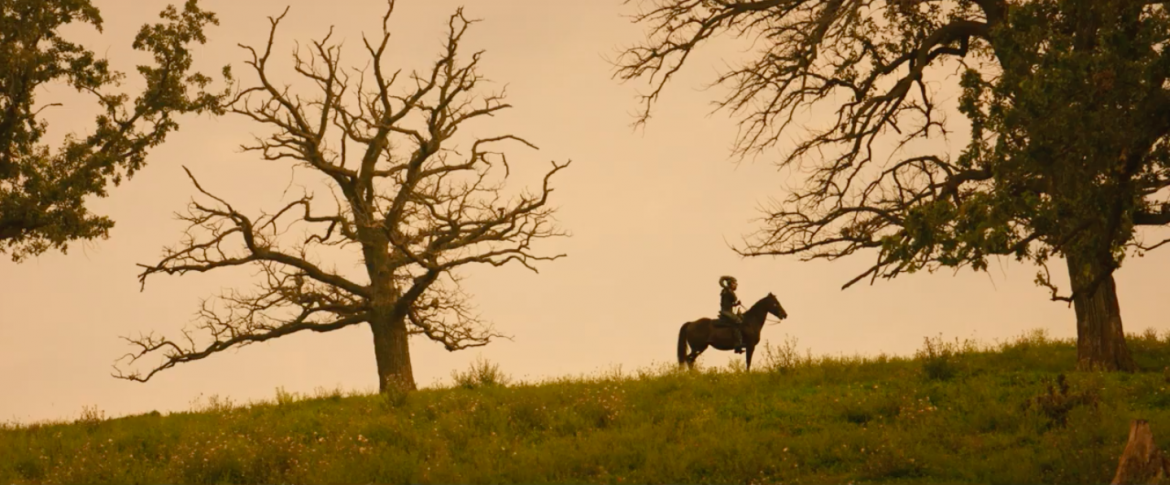
American Fable (Movie Review)
Kubrick once purportedly said, “Everything has already been done. Every story has been told every scene has been shot. It’s our job to do it one better.” Such variety is at work in nearly every major studio franchise today, and successfully so. In the indie scene, however, standing apart from say – your inspirations – is a heftier task if one wishes to break any new bounds and gain recognition.
A young girl (Gitty) is the black sheep of her family. She sees things others cannot, often coming under fire from an abusive family member for such visions. Her only safeguard is her father, a good-hearted man on the brink of loosing his farm to greedy corporate capitalists. When he takes a fall and lands in a coma, the daughter discovers his dark secret. In a race against time, she must unlock the power to fix the corruption in her world, and return to a place where there is no suffering.
Sadly, this isn’t del Toro’s masterpiece, Pan’s Labyrinth. While Anne Hamilton’s American Fable is visually and sonically rich, pretty framing and a whimsical score cannot sustain its lackluster story. To a fault, the film borrows heavily from Pan’s Labyrinth, neither offering a well-constructed series of events or thoughtful characters to engage the plot, nor any beats that differ from its predecessor.
Hamilton’s direction highlights all skills but her own. Cinematographer Wyatt Garfield captures the grace and immense internal journey Gitty traverses, and composer Gingger Shankar likewise offers an entry point into our lead’s mind with a calculating score tuned into Gitty’s uniqueness. Sadly, Hamilton shows more promise as an aesthetician rather than a filmmaker capable of carrying a story. Far too often the audience is marginalized by set pieces and characters meant to evoke a rousing anger, but their motivations lack the cohesion needed to stir our emotions. There’s meant to be an understanding of consequences the characters face, but when presented with characters unwilling to change as the narrative progresses, it’s difficult to find solace in their plight – and Hamilton is unrelenting in forcing empathy down the audience’s throat without so much as a moment to let her characters breathe and absorb the story.
Gitty, though, as our lead, is developed if only slightly. As others around her grow weak from their foibles, Gitty shows both mental and physical maturity, able to undertake the challenges set forth to her. Peyton Kennedy plays Gitty with a sincere innocence, much needed in the often-claustrophobic bleakness Hamilton surrounds her with. Yet, there are too many ingredients that are half-baked for the film to gain resonance, and by the end we’re begging for it to end – however tragic or uplifting it may be.
For its intentions of grappling with themes of innocence, girlhood, and maturation, American Fable is commendable and something desperately needed in genre films. Unfortunately, Hamilton did so little to set her film apart from Pan’s Labyrinth that it’s impossible to not compare the two. American Fable lacks the heart it needs to be a provocative moral lesson.

